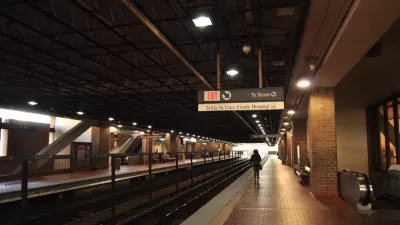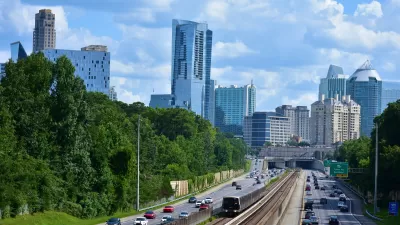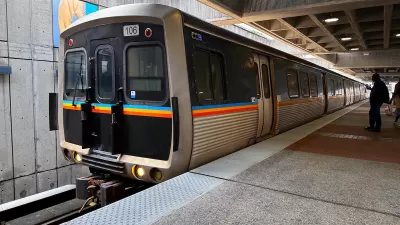The city of Atlanta recently gained a windfall of transit funding revenue in the form of a half-cent sales tax. The question now becomes whether the city can maximize the $2.5 billion investment.

Yonah Freemark provides in-depth analysis of Atlanta's planned $2.5 billion investment in the Metropolitan Atlanta Rapid Transit Authority (MARTA) system, as enabled by a half-cent sales tax approved by Atlanta voters in November 2016.
Freemark evaluates the potential of that funding by exploring a few key decisions still looming for Atlanta residents, politicians, and planners. For instance, Freemark asks, "What can the new revenue fund?" (The list of potential projects would require a lot more than $2.5 billion to fun.) To recommend some metrics for considering how to prioritize the potential projects, Freemark examines the density of residential and commercial along the proposed transit routes, along with demographic data, the politics of rights-of-way, and the future of infill development in the city.
Freemark's assessment at this point in the process is mostly positive, deciding that the city will "beef up existing bus and rail service and build new lines in central areas with good concentrations of people and jobs."
FULL STORY: Atlanta’s Raising $2.5 Billion to Invest in Transit. Will It Be Money Well-Spent?

Maui's Vacation Rental Debate Turns Ugly
Verbal attacks, misinformation campaigns and fistfights plague a high-stakes debate to convert thousands of vacation rentals into long-term housing.

Planetizen Federal Action Tracker
A weekly monitor of how Trump’s orders and actions are impacting planners and planning in America.

Chicago’s Ghost Rails
Just beneath the surface of the modern city lie the remnants of its expansive early 20th-century streetcar system.

Bend, Oregon Zoning Reforms Prioritize Small-Scale Housing
The city altered its zoning code to allow multi-family housing and eliminated parking mandates citywide.

Amtrak Cutting Jobs, Funding to High-Speed Rail
The agency plans to cut 10 percent of its workforce and has confirmed it will not fund new high-speed rail projects.

LA Denies Basic Services to Unhoused Residents
The city has repeatedly failed to respond to requests for trash pickup at encampment sites, and eliminated a program that provided mobile showers and toilets.
Urban Design for Planners 1: Software Tools
This six-course series explores essential urban design concepts using open source software and equips planners with the tools they need to participate fully in the urban design process.
Planning for Universal Design
Learn the tools for implementing Universal Design in planning regulations.
planning NEXT
Appalachian Highlands Housing Partners
Mpact (founded as Rail~Volution)
City of Camden Redevelopment Agency
City of Astoria
City of Portland
City of Laramie





























